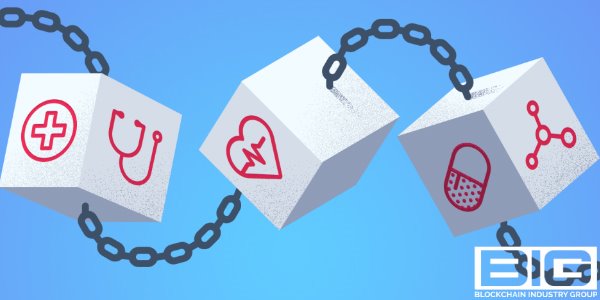
Blockchain has become increasingly popular thanks to the recent success of Bitcoin which utilizes the blockchain technology. This has caught the attention of healthcare companies and even the government itself as a tool to provide a secure way to store patient medical records.
Essentially, blockchain is a technology where data is stored in a public digital ledger, known as blocks. These blocks contain various information such as recent transactions or personal data and can be linked to another block of information, forming a “blockchain”. The blockchain technology is designed to be unmodifiable once the block is completed, making this technology a secure way to store data. This information is stored in various computers known as “nodes”. Additionally, the information on these blocks are verified by the entire community and is not controlled by a central authority. Therefore these “blocks” of information cannot be manipulated by a single user without everyone else knowing. Data is shared publicly although only to those who have permission to access the information.
The idea is to gather and track every piece of medical data a patient has – nutrition, medical history, parent’s medical history, medication history and more. This information could hold the key to maximizing the quantity and quality of life of the patient. This information is then stored on the blockchain and access has to be granted by the patient itself.
Utilizing the blockchain system in healthcare can prove to be very useful and transformative as it allows data to be accessible to all healthcare providers. Presently, healthcare data is scattered amongst different providers, sometimes even inaccessible to others which can be critical in saving a patient’s life. Some countries have a national system that provides medical data, but they are vulnerable to hackers. With blockchain, this data is stored in different computers, making it difficult to be hacked by a single entity.
Blockchain has the capability to revolutionize healthcare in quite a few ways. It can cut down admin costs by eliminating the need for intermediaries with automatic and efficient processing. Discrepancies in patient’s prescription information can also be avoided as it can now be stored and shared across all computers in the hospitals and pharmacies. Those with permission can access the patient’s prescription record to get an accurate view of the patient’s medication history. Through this information, healthcare providers can compare and assess the needs of their patients and provide more personalized care.
Medical research can benefit greatly from this technology as well. Once blockchain is utilized in storing patient’s information, with permission, medical researchers can access complete and unadulterated data from patients with the same medical condition, allowing them to compare notes and utilize this information for the purposes of their research.
All these possibilities make the future of healthcare brighter with blockchain and some countries have made the move towards this advancement. Estonia, one of Europe’s digitally advanced countries had their eHealth Authority sign a deal with a blockchain pioneer Guardtime to secure their citizens’ medical data. Over time, with the revolution of blockchain, other countries will follow suit and every patient will have more control over their health.
By D. Petilla, BIG Writer



